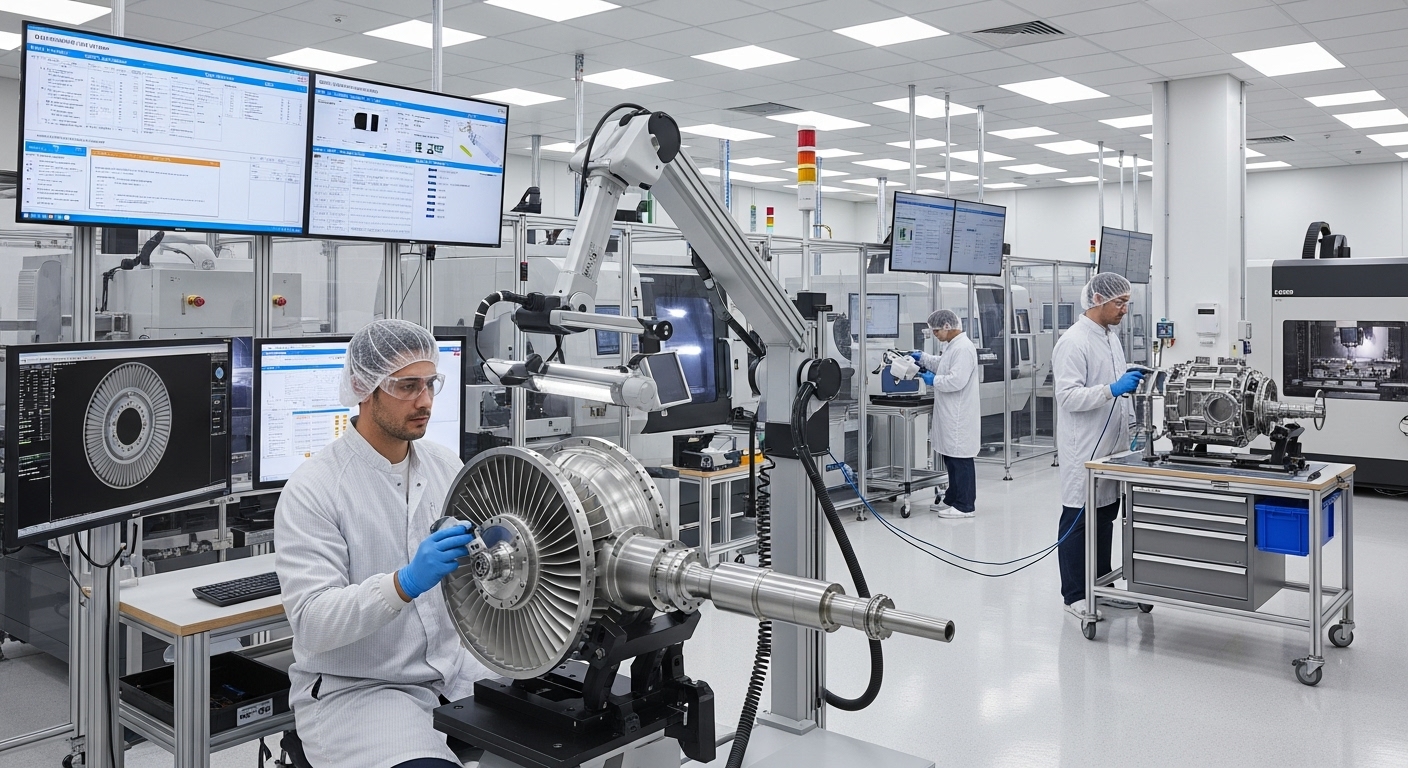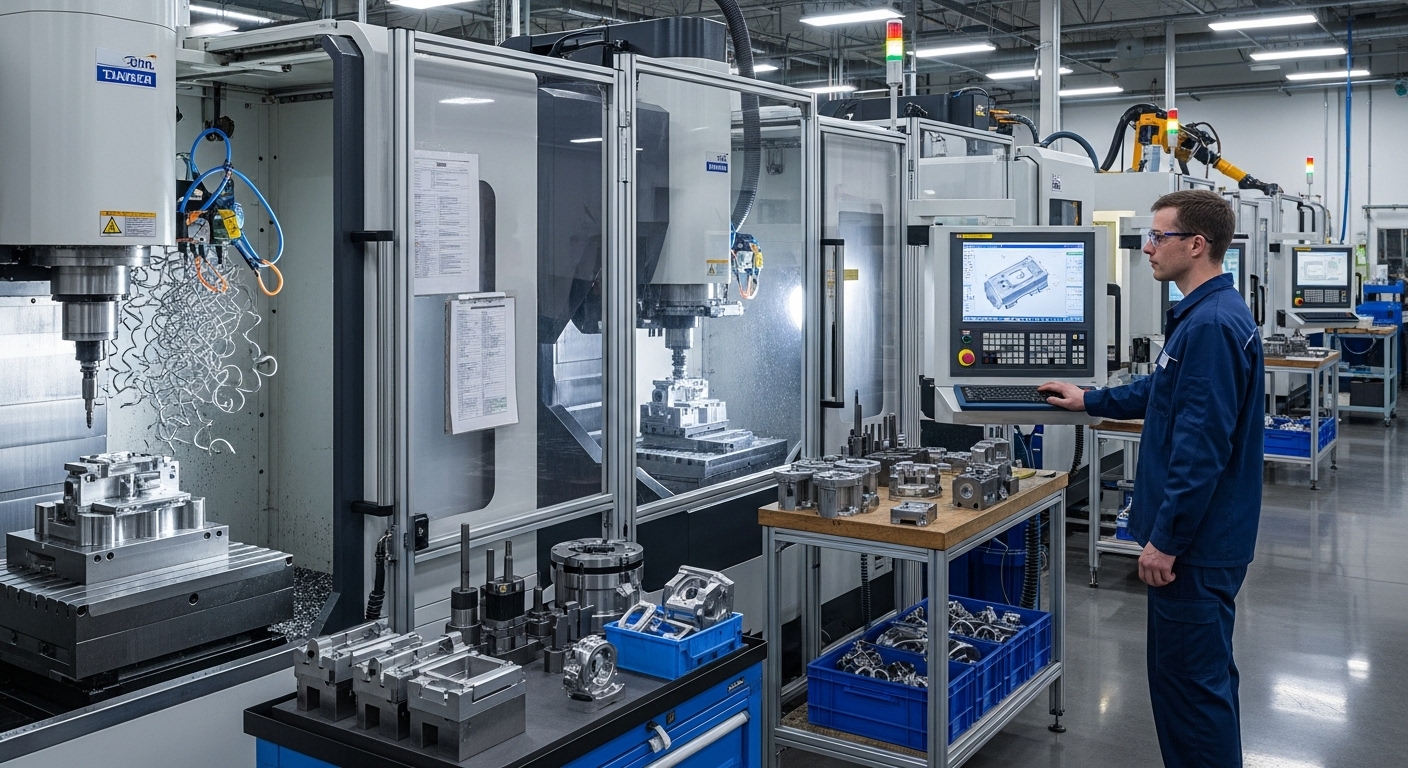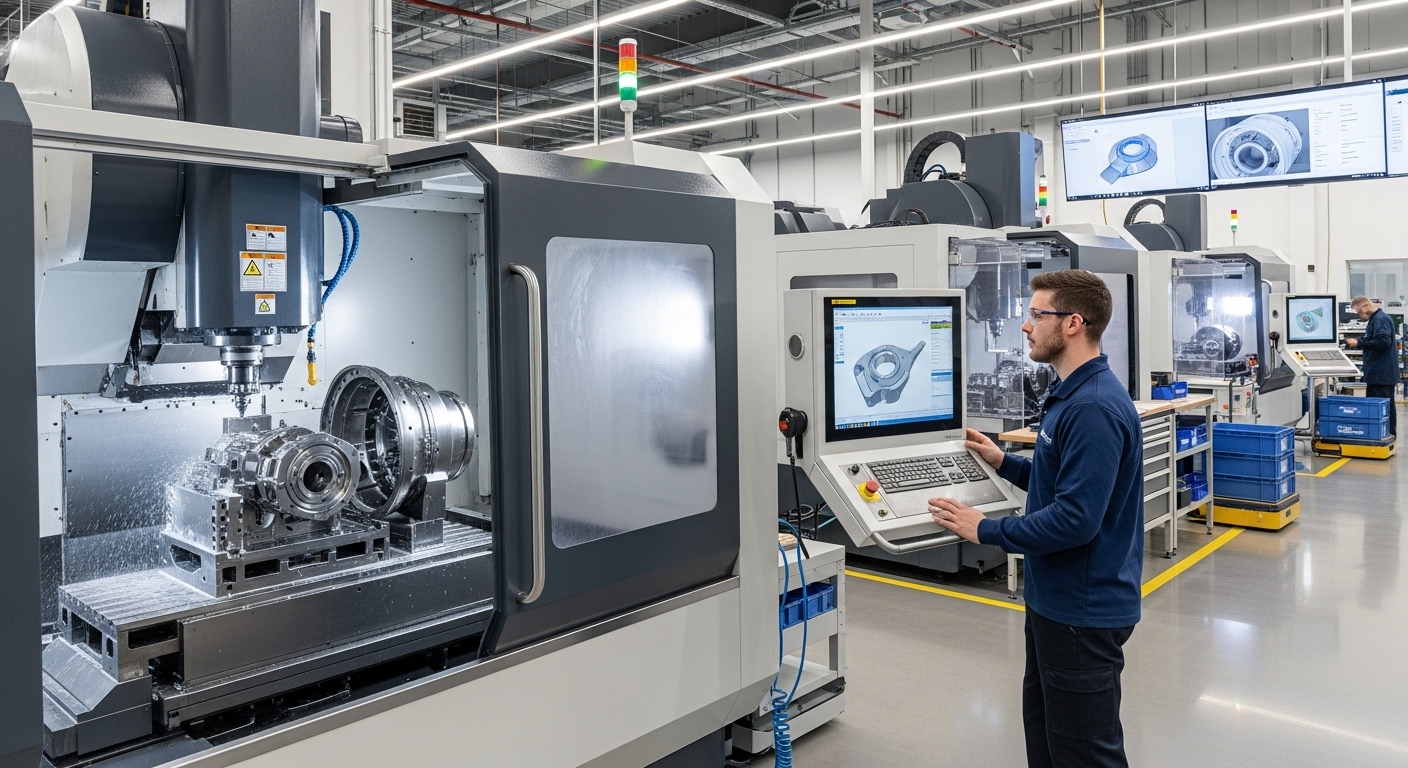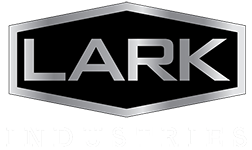In the fast-evolving landscape of manufacturing, the integration of technology has become a game-changer. One of the most exciting advancements is the use of collaborative robots, or cobots, in CNC (Computer Numerical Control) manufacturing. These robots are designed to work alongside humans, enhancing both efficiency and safety. In this article, we will explore the role of cobots in CNC manufacturing, their benefits, and how they differ from traditional industrial robots.
Understanding Collaborative Robots (Cobots)
Cobots are a type of robot specifically designed to work alongside human workers in a shared workspace. Unlike traditional industrial robots that often require safety barriers, cobots are equipped with advanced sensors and technologies that allow them to operate safely in close proximity to humans. This makes them particularly valuable in environments like CNC manufacturing, where precision and safety are paramount.
The Rise of Human-Robot Collaboration in Factories
The concept of human-robot collaboration in factories is not entirely new, but it has gained significant traction in recent years. With advancements in technology, cobots have become more accessible and affordable for small and medium-sized enterprises (SMEs). This democratization of technology is crucial for leveling the playing field in the competitive manufacturing sector.
Why Choose Cobots Over Traditional Industrial Robots?
While both cobots and traditional industrial robots serve important functions in manufacturing, there are distinct differences between the two.
- Flexibility and Ease of Use: Cobots are designed to be more flexible and easier to program than their industrial counterparts. This makes them ideal for tasks that require frequent changes or adjustments.
- Safety Features: Cobots are equipped with sensors and software that enable them to detect human presence and adjust their operations accordingly. This reduces the need for extensive safety barriers, making them safer to work with in a shared environment.
- Cost-Effectiveness: Cobots are generally more affordable than industrial robots, particularly when considering the additional costs of safety infrastructure required for traditional robots.
Benefits of Cobots in CNC Machining
The integration of cobots into CNC machining processes offers numerous advantages, particularly for SMEs looking to optimize their operations.
Enhancing Efficiency
Cobots can perform repetitive and time-consuming tasks with high precision, freeing up human workers to focus on more complex and creative aspects of manufacturing. This leads to increased productivity and efficiency on the production floor.
Improving Safety
Safety is a top priority in any manufacturing environment. Cobots enhance safety by taking over dangerous tasks and working alongside humans without the need for extensive safety barriers. This reduces the risk of workplace accidents and injuries.
Boosting Quality
With their precision and consistency, cobots can improve the overall quality of manufactured products. They minimize human error and ensure that each part is produced to exact specifications, which is critical in CNC machining.
Supporting SMEs
For small and medium-sized enterprises, investing in cobots can be a game-changer. Cobots are more affordable and easier to implement than traditional industrial robots, allowing SMEs to compete with larger manufacturers without incurring prohibitive costs.
Automation Safety in Manufacturing
The integration of cobots into manufacturing processes raises important considerations about automation safety. Manufacturers must ensure that cobots are programmed and maintained correctly to prevent malfunctions and ensure safe operation.
Implementing Safety Standards
To ensure safety, manufacturers should adhere to established safety standards and guidelines for robotic systems. This includes regular maintenance checks, proper training for workers, and the implementation of emergency stop mechanisms.
Training and Education
Educating workers about the safe use of cobots is crucial. This includes understanding how to program and interact with cobots, recognizing potential hazards, and knowing how to respond in case of an emergency.
by Moritz Karst (https://unsplash.com/@mobrigado)
The Future of Smart Manufacturing
As technology continues to advance, the role of cobots in smart manufacturing will only grow. Their ability to work collaboratively with humans, coupled with their flexibility and cost-effectiveness, positions them as a key component of the future of manufacturing.
Innovations on the Horizon
The development of more sophisticated sensors and AI technologies will further enhance the capabilities of cobots. This will enable even greater levels of automation and efficiency in CNC machining and other manufacturing processes.
Expanding Applications
While cobots are already making a significant impact in CNC manufacturing, their applications are expanding into other areas such as assembly, packaging, and quality control. This versatility makes them an attractive option for a wide range of industries.
Conclusion
Collaborative robots, or cobots, represent a significant advancement in CNC manufacturing. Their ability to work safely alongside humans, enhance efficiency, and improve product quality makes them an invaluable asset for modern manufacturers. As technology continues to evolve, the role of cobots in smart manufacturing will only become more prominent, paving the way for a more efficient and safer manufacturing landscape.
Embracing this technology can provide SMEs with the competitive edge they need to thrive in an increasingly automated world. By leveraging the benefits of cobots, manufacturers can optimize their operations and ensure a safer, more productive work environment.





